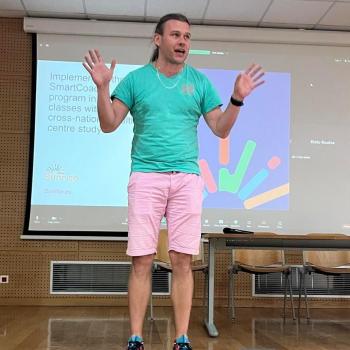Addressing Alcohol-Related Risks among Individuals with Disabilities in Sports: A Swiss Perspective
Background:
Inclusion and participation processes for individuals with disabilities (IwD) foster independence and decision-making, promoting equal citizenship. However, these processes introduce new challenges, notably related to substance consumption, including alcohol. Historically, IwD have been overlooked in alcohol prevention efforts, often resulting in restrictive prohibitions. Currently, Switzerland lacks specific alcohol prevention tools and programs for IwD, leaving a critical knowledge gap in this area.
Methods:
We conducted interviews with 117 IwD and 27 trainers in Swiss voluntary sports programs for IwD (PluSport, Procap, Wheelchair Sports). Our interviews (free listing with IwD and semi-structured with trainers) lasting between 10 and 15 and 30 to 60 minutes explored knowledge of alcohol, strategies for responsible consumption, identification of problematic patterns, and attitudes towards trainers' relationship to the alcohol and their role in the prevention of alcohol consumption in the sports setting. Thematic analysis was employed, supported by three focus group discussions involving 14 experts from the IwD community. A participatory approach has been applied in each stage, involving up to 16 trainers and IwD in the study's preparation, implementation, analysis, and interpretation.
Results:
IwD reported positive and negative associations with alcohol. Despite no differences between different disability subgroups (e.g., physical, cognitive, psychiatric), some participants showed knowledge gaps regarding suitable resources and strategies in connection with alcohol consumption. Approximately half of the participants were dependent on medication, with limited awareness of the potential consequences of polysubstance use. From the point of view of the trainers, alcohol does not appear to be a significant concern within disability sports. However, it is more relevant outside of sports, such as in leisure activities. Trainers demonstrated average knowledge of alcohol but lacked understanding of its biological processes and interactions with medications. Resources and prevention strategies/programs related to alcohol consumption in disability sports are limited, according to trainers. Half of the trainers desired more resources, while the others believed no action was needed.
Conclusion:
Although alcohol is not a prevalent concern within disability sports, the study highlights the need for tailored alcohol prevention strategies for IwD. Given knowledge gaps and potential risks, addressing alarming alcohol habits is vital. Enhancing knowledge and resources, particularly in understanding alcohol's biological effects and interactions, can create an inclusive environment in disability sports, promoting responsible alcohol use and participant well-being. Collaborative efforts are essential to develop effective interventions in this context.
